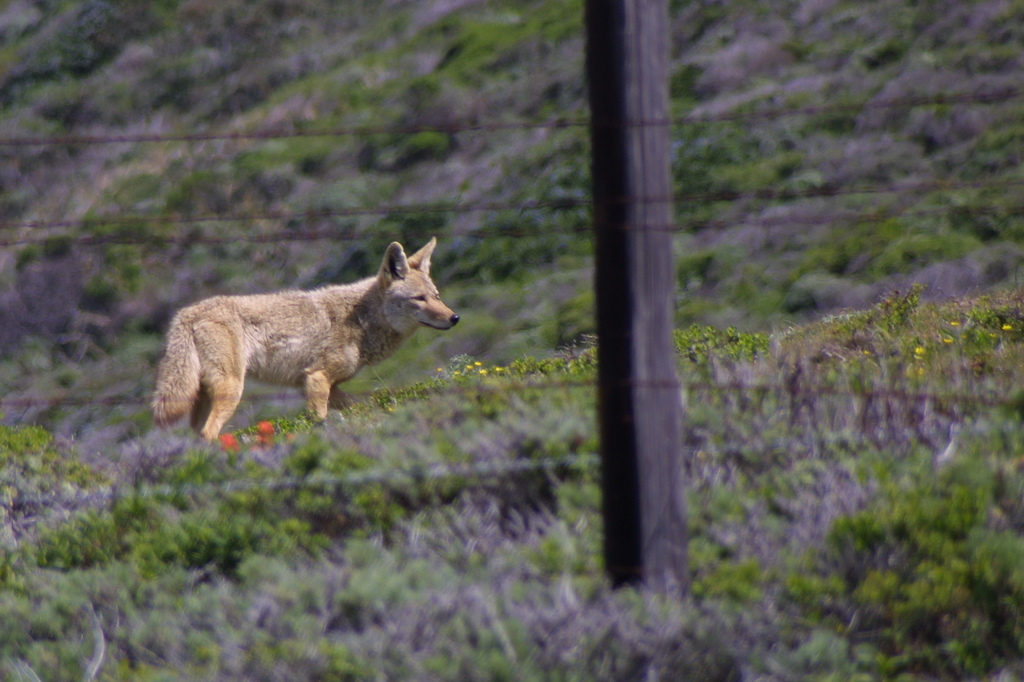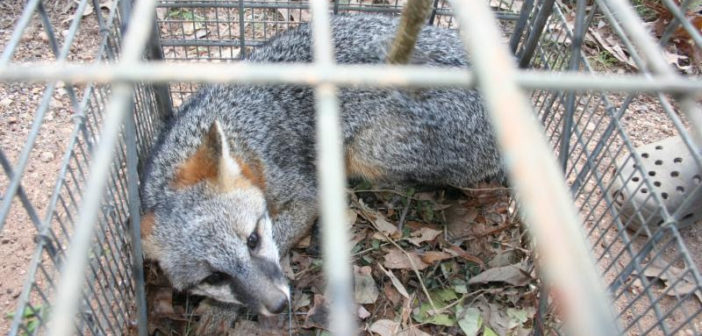PUBLISHER’S NOTE: As a matter of policy, publication of content on the Animal People Forum does not imply that Animal People, Inc. agrees with or endorses the ideas expressed within. As a 501(c)3 charity, Animal People specifically does not endorse political candidates for office, and all political opinions and endorsements contained in this article are the author’s own and not those of Animal People.
California Assemblywoman Lorena Gonzalez (D – San Diego) is joining Social Compassion in Legislation and the Center for Biological Diversity in calling for a statewide ban on fur trapping. Introduced on Thursday, January 24th, Assembly Bill 273 would end California’s costly trapping program, which destroys wildlife for commercial purposes.
“Not only does the cruel fur trapping trade decimate our increasingly vulnerable wildlife populations, running this program doesn’t even make fiscal policy sense,” Assemblywoman Gonzalez said. “Taxpayers are subsidizing this unnecessary commercial activity, because the cost of managing this program isn’t even covered by the revenue from trapping license fees.”

An example of a garment with fox fur trim. Animals die painful deaths to create products like these. Image credit Mathilda Samuelsson, CC BY-SA 3.0.
Hundreds of coyotes, foxes, badgers and other fur-bearing animals are trapped each year in California so their pelts can be sold for a profit overseas. Because individual trappers concentrate their operations in limited geographical areas, they can locally deplete populations of the species they target, impairing the ecological functioning of the area and diminishing opportunities for wildlife watching in these areas.
In 2017, a total of 133 trapping licenses were sold to fur trappers in California, generating approximately $15,000 to the Department of Fish and Wildlife. Given that the revenue generated by the sale of trapping licenses would only cover a fraction of the costs of employing even a single warden, proper management and enforcement of a fur trapping program would cost far more than the revenue generated by licenses, resulting in a de facto subsidy of commercial fur trapping.
Similarly, the minimal revenue generated by the sale of the furs of the animals killed by trappers is dwarfed by the millions of dollars that non-consumptive wildlife watching generates in California’s economy, according to the U.S. Fish and Wildlife Service.
In 2015, the California Fish and Game Commission voted to make California the first state to ban the commercial trapping of bobcats and it noted the program’s funding shortfall as a key role in the decision. River otter and red fox trapping is also banned in the state.

A coyote near Big Sur, in California. Wild coyotes like this one are currently trapped and killed for fur and would be protected from this fate by Bill 273. Image credit Marcel Holyoak, CC BY-SA 3.0.
“California should not be subsidizing the destruction of our wildlife for the private profit of a few. This bill is an important step in ending an antiquated and cruel practice and bringing California’s wildlife management in line with the values of the overwhelming majority of Californians, who value our wildlife alive, not as commodities to be killed and skinned for foreign fur markets,” said Brendan Cummings, Conservation Director at the Center for Biological Diversity, who are cosponsoring the legislation.
Commercial animal trapping can involve killing animals through strangulation, gassing and anal electrocution in order to ensure undamaged pelts. This cruel and inhumane practice has led many famous brands to commit to going fur-free, including companies like Burberry, Versace, Gucci, Michael Kors, Armani, Tom Ford, Stella McCartney, Tommy Hilfiger, Ralph Lauren, and Calvin Klein, among others.
Featured image: A fox caught in a trap. Bill 273 seeks to end this cruel practice in the state of California. Image via Social Compassion in Legislation.






1 Comment
I am a firm supporter for animal rights. I would be happy to see all trapping of animals end immediately. I strongly support Bill 273.